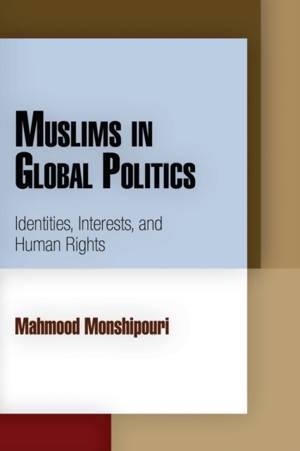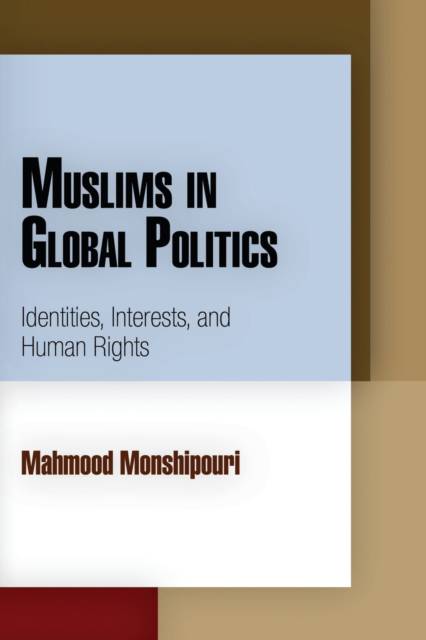
- Afhalen na 1 uur in een winkel met voorraad
- Gratis thuislevering in België vanaf € 30
- Ruim aanbod met 7 miljoen producten
- Afhalen na 1 uur in een winkel met voorraad
- Gratis thuislevering in België vanaf € 30
- Ruim aanbod met 7 miljoen producten
Zoeken
€ 60,95
+ 121 punten
Omschrijving
In Egypt Islamists clash with secularists over religious and national identity, while in Turkey secularist ruling elites have chosen to accommodate Islamists in the name of democracy and reconciliation. As Islam spreads throughout the world, Muslims living in their traditional homelands and in the Western world are grappling with shifting identities. In all cases, understanding the dynamics of identity-based politics is critical to the future of Muslims and their neighbors across the globe.
In Muslims in Global Politics, Mahmood Monshipouri examines the role identity plays in political conflicts in six Muslim nations--Egypt, Iraq, the United Arab Emirates, Turkey, Iran, and Indonesia--as well as in Muslim diaspora communities in Europe and North America. In each instance, he describes how conservatives, neofundamentalists, reformists, and secularists construct identity in different ways and how these identities play out in the political arena. With globalization, the demand for human rights continues to grow in the Muslim world, and struggles over modernity, authenticity, legitimacy, and rationality become increasingly important. Muslims in Global Politics deepens our understanding of how modern ideas and norms interact with the traditions of the Islamic world and, in turn, shows how human rights advocates can provide an alternative to militant Islamist movements.Specificaties
Betrokkenen
- Auteur(s):
- Uitgeverij:
Inhoud
- Aantal bladzijden:
- 344
- Taal:
- Engels
- Reeks:
Eigenschappen
- Productcode (EAN):
- 9780812221961
- Verschijningsdatum:
- 12/03/2012
- Uitvoering:
- Paperback
- Formaat:
- Trade paperback (VS)
- Afmetingen:
- 152 mm x 229 mm
- Gewicht:
- 521 g

Alleen bij Standaard Boekhandel
+ 121 punten op je klantenkaart van Standaard Boekhandel
Beoordelingen
We publiceren alleen reviews die voldoen aan de voorwaarden voor reviews. Bekijk onze voorwaarden voor reviews.











